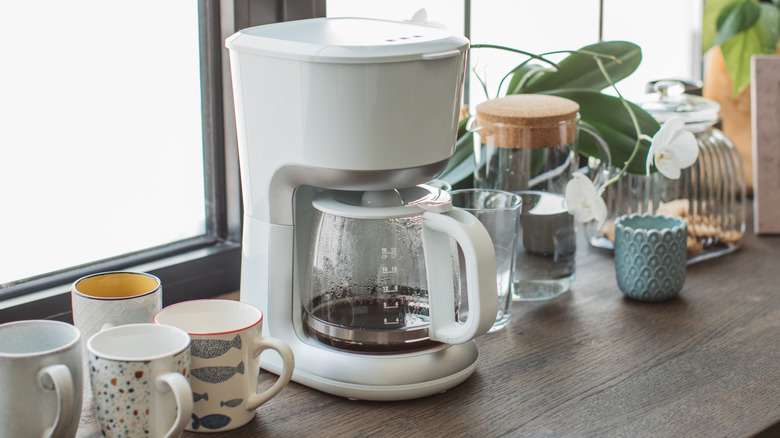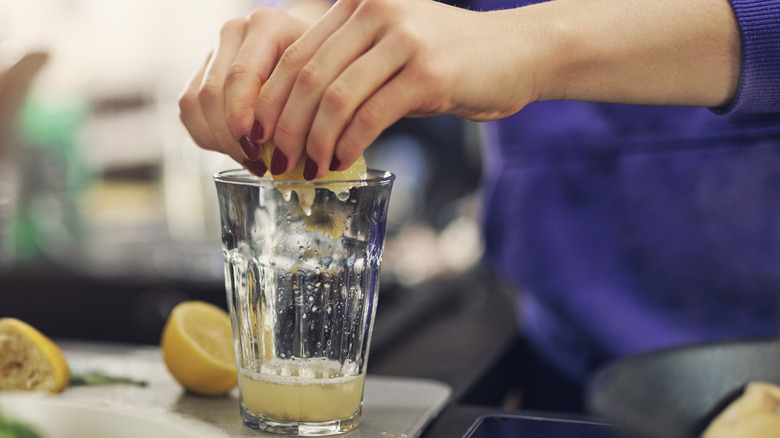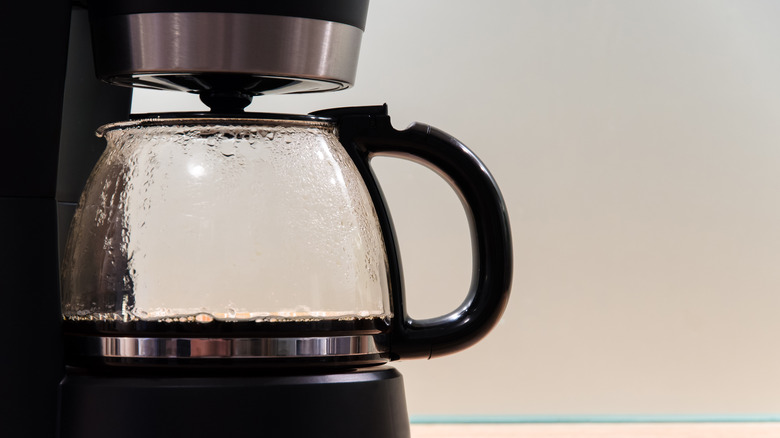Ditch The Vinegar When Cleaning Your Coffee Machine & Try This Instead
Regularly cleaning and descaling your coffee machine is incredibly important. Minerals from your water, like calcium and magnesium, filter through your coffee machine, eventually causing limescale buildup on the heating element of your unit. After time, these limescale deposits can thicken and cause your coffee machine to malfunction.
Many people reach for vinegar when cleaning and descaling their coffee machines. After all, vinegar can be a versatile cleaning tool – affordable, readily available, and quite effective at breaking down mineral deposits. However, despite being a convenient cleaning product, vinegar can be very difficult to rinse out completely, leaving your next few pots of coffee tasting a bit funny. Additionally, companies like Lavazza advise against using vinegar as a descaling agent.
This new revelation has many people wondering how to clean a coffee machine without vinegar. Turns out, there is another common household ingredient that works just as well: lemon juice. Lemon juice is acidic and works similarly to white vinegar, but with a significant advantage — it leaves behind a pleasant, fresh smell instead of a sour odor. Not only does lemon juice effectively clean and descale, but it also ensures that your coffee tastes just right after every cleaning.
How to clean your coffee machine with lemon juice
Cleaning your coffee machine with lemon juice is one of the easiest ways to clean your coffee maker and ensure it stays free of contaminants. To start, you'll simply want to mix 1 cup of lemon juice with 1 cup of water. If you have an extra bottle of 100% lemon juice concentrate in your pantry, this also works just fine! This mixture can then be poured directly into the coffee machine's reservoir. Let it sit for 15 to 20 minutes to break down any residue in your water tank. Then, place a filter in the basket and start the brew cycle as if you were making a cup of coffee. The mixture will then get to work breaking down mineral and calcium deposits.
Once the hot mixture has cycled through, you can use a sponge or bottle brush scrub the inside of the carafe. If your carafe needs some extra care, you can make a paste using baking soda and water and use it to scrub out the pot. Once your carafe is squeaky clean, run a second and third brew cycle with just cold water to rinse out any of the remaining mixture. If you still notice any buildup, you can repeat this process until your machine is as clean as you would like. Ideally, you should repeat this process every month. However, descaling every two to three months may be enough depending on how often you use your coffee machine.
Other options for cleaning your coffee machine
If lemon juice isn't your preferred method, there are several other effective options for cleaning your coffee machine. One popular trick is the baking soda hack. Pour boiling water up to the top of your coffee pot and add two tablespoons of baking soda. Let it dissolve for about half an hour before washing the pot out with water.
Alka-Seltzer can also be surprisingly effective for those looking to remove stubborn coffee stains. Start by emptying your coffee pot and dropping two to four Alka-Seltzer tablets into it. Then, fill the pot with warm water to dissolve the tablets. The foam created by the tablets will break down tough coffee stains and build up.
Another surprising ingredient that can be used to clean your coffee machine is hard alcohol. Fill the reservoir with a mixture of 25% alcohol and 75% fresh water. Stir the mixture and run your coffee maker on a normal brewing cycle. With this one, you want to make sure you clean your coffee maker thoroughly to avoid any residual alcohol taste in your coffee.


